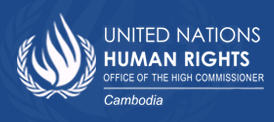

UN High Commissioner for Human Rights Navi Pillay called on all States to "live up to the pledges they have made to prevent, prosecute and punish the use of torture and other cruel, inhuman or degrading treatment." In a media statement issued to mark the United Nations International Day in Support of Victims of Torture, the UN human rights chief stressed that under the Convention Against Torture ratified by 150 States, "the use of torture is illegal, under any circumstances, with no exceptions." Read the statement in English | Khmer
States have an obligation to protect victims of torture and to ensure that they do not face reprisals or intimidation for cooperating with UN bodies, said in a joint statement by the UN Committee Against Torture, the Subcommittee on Prevention of Torture, the Special Rapporteur on torture and other cruel, inhuman or degrading treatment or punishment, and the Board of Trustees of the UN Voluntary Fund for Victims of Torture. Read the statement in English | Khmer
In Cambodia, the Royal Government has made efforts to deal with torture committed in the Khmer Rouge Era. "The trial and sentencing of 'Duch' by the ECCC marks the first time in which a public official has been prosecuted for acts of torture, at least since the Khmer Rouge period," said in an Op-Ed article published in Phnom Penh Post, written by James Heenan, OHCHR-Cambodia representative a.i.. Cambodia is one of the very few countries in Asia to have ratified both the UN Convention Against Torture and the its Optional Protocol. Read the Op-Ed in English | Khmer